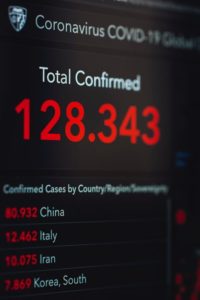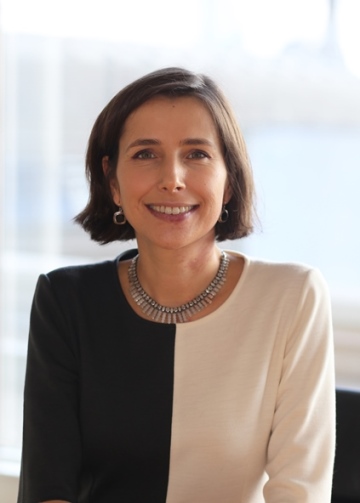Last year I wrote about three ways to prepare for tougher markets. If now isn’t that tougher market, I don’t know what is! As we slowly find our way through this Covid-19 environment, I reflect on my advice coming into this market and share my experience of managing a team and portfolios in the eye of the storm.
Be strategic but flexible
From a portfolio perspective, it has been important not to react to every piece of information but to judge how to position our portfolios strategically. This is important to both protect them and be ready to take advantage of the benefits that will undoubtedly come as different regions of the world get back to work. It’s important to maintain discipline and clarity of vision, but also to be flexible.
We have patiently weaved a broad range of capabilities and personalities together, aligning ourselves around a common purpose: to deliver the outcomes required by our clients.
From a human standpoint, as our CEO, Peter Harrison, recently said, “We created a culture of trust by empowering our teams to work from home by investing in technology.” This has made the switch to full-time home working, if not completely painless, far more straightforward than if we had not taken this approach. We have been able to access all our systems and manage our portfolios seamlessly.
Consistent communication
 I became Chief Investment Officer (CIO) of Schroders in 2019 and one of my goals has been to improve the communication across our many teams.
I became Chief Investment Officer (CIO) of Schroders in 2019 and one of my goals has been to improve the communication across our many teams.
This benefit has been felt strongly during this period – the credit team has kept us up to date on liquidity, the Data Insights Unit with Covid-19 modelling and the economists on the
likely impacts of the various stimulus packages and possible rolling shutdowns.
We have had portfolio managers calling in daily from their respective homes to ensure we all implement our views consistently. Virtual intra-month asset allocation meetings and firm-wide weekly economic updates have also been organised.
Chairing these meetings is a challenge but I ensure everyone gets a chance to contribute, not just those with the loudest voices (or the best Internet connection).
It’s been important to communicate with our clients frequently but also with transparency regarding the signs we are looking for and the data we are using to make our decisions.
Meanwhile, our content team has kept our websites full of articles to inform, assist and reassure clients.
Using less usual sources of data
Managing multi-asset portfolios involves understanding key economic and market data to evaluate where each economy is in its market cycle and where the valuation opportunities lie. It is also about identifying potential risk scenarios that could have a meaningful impact on the portfolio.
Emotional and mental support and compassion for our colleagues is crucial to surviving such an alien lockdown environment.
The Covid-19 crisis spread from Asia to Europe to the UK, US and then Africa, India and South America. Experiences in Asia allowed us to observe the factors that were likely to matter; including when lockdowns occurred, the age distribution in a country, the approach to testing, the healthcare system’s ability to cope as well as the fiscal packages needed to keep people furloughed.
We had to gear up quickly to modelling new ideas, and people from both our Data Insights Unit and our sustainability team swiftly switched to evaluating this virus, alongside our economics team, in a dedicated Coronavirus Working Party. We’re not through it yet but having a wide range of skills and the ability to reallocate resources has been invaluable in understanding the likely path and the impact on economies.
Resilient team
I have previously written about resilience being a team game and I was not wrong. At Schroders, we believe in the power of long-term relationships. We have patiently weaved a broad range of capabilities and personalities together, aligning ourselves around a common purpose: to deliver the outcomes required by our clients.

Creating a culture of accountability and respect, as I outlined in my thoughts on the importance of the human factor, is essential to prepare us for tougher markets and has also helped us to cope with the unprecedented physical dislocation that we have experienced in this crisis. Not only do we need to cope with high levels of uncertainty, soon there will be a time to be brave in our portfolios and we need to be mentally well positioned for this.
In building a resilient team, I firmly believe that well-being (and a supportive environment in which to work) is the answer. Emotional and mental support as well as compassion for our colleagues is crucial to surviving such an alien lock-down environment.
Everyone finds themselves in a different situation – separated from vulnerable relatives, home-schooling while working, living on their own or back living with their parents after many years of independence. It has never been so important to stand in someone else’s shoes to understand the stress and strain they may be feeling and to support them through it.
We don’t know what the future will hold for us post-Covid-19 but I believe that this experience will strengthen the relationships we have, make us better portfolio managers for future uncertainties and realise that the human factor is just as important as analysis.
I wish you, and your portfolios, all the best in getting through this period.
Schroders Investment Management Ltd registration number: 01893220 (Incorporated in England and Wales) is authorised and regulated in the UK by the Financial Conduct Authority and an authorised financial services provider in South Africa FSP No: 48998
Featured image: iStock








